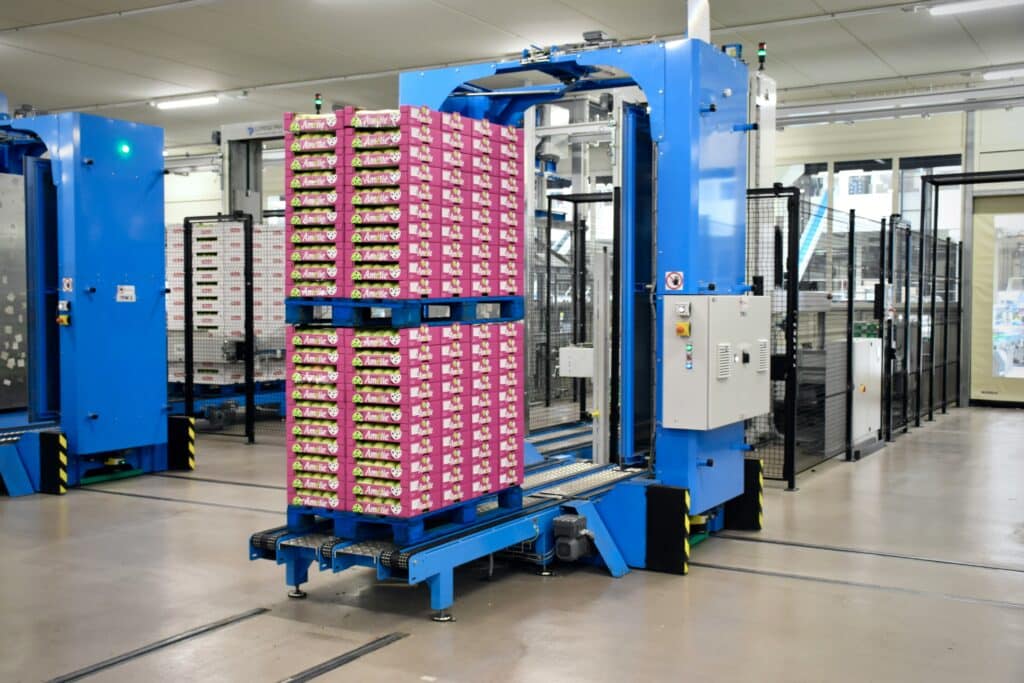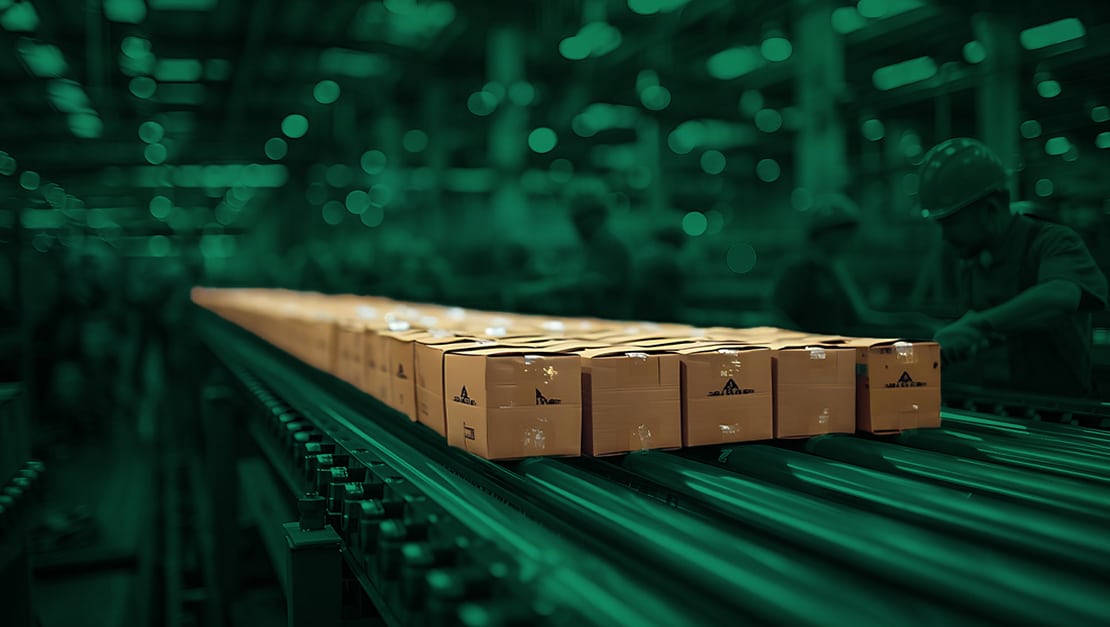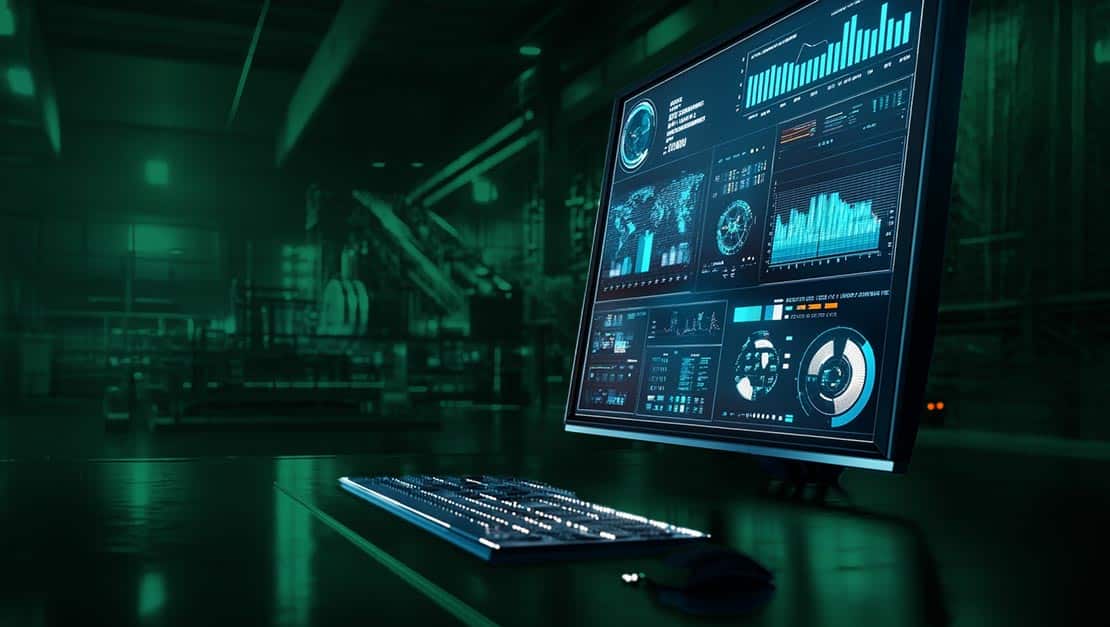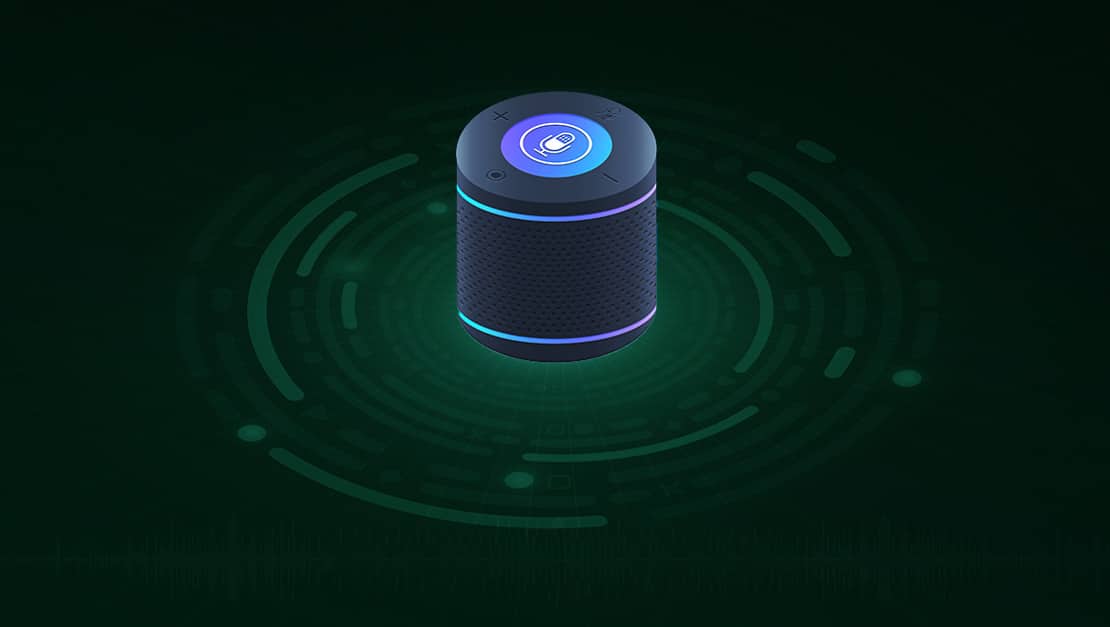In countless industries, manual work has been the backbone of operations. Food manufacturing requires employees to operate machinery and check quality. Warehouse teams need to move, sort, pick, and pack stock for orders. In fleet management, drivers are responsible for reporting vehicle information and delivering orders.
However, as technology becomes more sophisticated, the methods we’re used to working with are evolving. Thanks to artificial intelligence (AI), new technologies are poised to transform the industries above as well as many others, offering enhanced efficiency, accuracy, and safety along with cost-saving opportunities.
This article will explore the different ways AI technology is being leveraged by traditional industries to automate manual processes, paving the way for transformative change and an expansion of the way we’re used to working.
The Challenges of Manual Operations
Up until recently, we relied solely on manual operations in most industries. Employees took care of everything from quality control to physical labor and everything in between, but as technology becomes more embedded in our daily workflows, this is likely to change.
While manual operations aren’t likely to be completely replaced in the near future, there are many challenges that come with it that highlight the need for AI technology to automate manual processes. Here’s a look at a few of those challenges in some key industries.
Food Manufacturing
Manual inspections and quality control are pillars of food manufacturing. Both processes eat up significant time and resources, for example, inspectors need to examine products for defects or contaminants, which can be prone to error. Additionally, tracking inventory like ingredients, especially where there are many to examine, can lead to inefficiencies and inaccurate stock levels.
Fleet Management
In the fleet management industry, manual route planning and optimization remains one of the core challenges. To make the most of budgets and resources, fleet managers need to manually plan delivery routes by looking at factors like traffic, weather, fleet availability, and delivery windows. This process can be time-consuming and inefficient, especially when things need to be changed last minute due to potential breakdowns or route changes.
Logistics
Manual order processing and fulfillment are critical tasks for logistics teams, and they’re often labor-intensive, making them not only error-prone but also potential safety hazards. Employees aren’t always operating at the same level, which can lead to delays and inaccuracies, leading to inaccurate inventory management and stockouts.
Warehousing
Warehouse teams are required to perform tasks like picking items, packing them, and restocking, which requires manually physically locating items on shelves and preparing them for orders. These manual processes are time-consuming and leave too much opportunity for errors, which can cause orders packed with the wrong items and lower customer satisfaction.
Leveraging AI for Automation: Opportunities and Solutions
As a response to the challenges of manual operations, AI is changing the way industries work, offering new opportunities for improved efficiency, cost savings, and more informed decision-making. AI-led solutions are paving the way for innovations in operation optimization, enabling organizations to overcome the limitations of manual processes. Here’s a brief overview of what that looks like in specific industries.
Automating Quality Control and Efficiency in Food Manufacturing
AI-powered systems can drastically improve quality control measures through the implementation of technologies like computer vision and machine learning (ML). These systems can learn to detect defects and ensure consistent product quality, cutting down the need for manual inspections. Not only that, but AI-driven predictive maintenance can be used to analyze equipment data and anticipate maintenance needs, reducing downtime.
Driving Costs Down With AI in Fleet Management
When paired with AI algorithms, route optimization can become a lot more efficient by gathering data on traffic patterns and delivery constraints to plan the best routes. This helps fleet managers cut down on manual route planning, reduce fuel costs, and improve delivery times. Additionally, AI can also be used to automate fleet predictive maintenance on vehicles to understand when they need to go for maintenance, preventing costly breakdowns on the road.
Forecasting Demand for Logistics Teams
AI-based forecasting technology can help improve logistics automation and inventory management by analyzing historical data and market trends to predict demand and optimize stock levels. This way, companies can avoid stockouts and overstock. With AI, automating manual processes like order fulfillment can help reduce errors and increase customer satisfaction.
AI-Powered Robotics Transforming Warehousing

AI-driven robotics systems are being implemented in warehouses to remove the burden of manually picking and packing orders off of employees, making work not only more efficient and cost-effective but safer, too. AI can also be used to build smart warehouse management systems that rely on technology to optimize warehouse layout and inventory placement, further reducing storage costs and improving the way warehouse space is used.
Automating Manual Processes With AI: Case Studies
AI is already being leveraged by countless organizations, from small companies to large corporations. The case studies below highlight how when AI is used, whether on its own or paired with other technologies like GPS or robotics, it has the power to transform operations and increase productivity. From enhancing quality control in food production to optimizing delivery routes, here’s a look at how AI helps automate manual processes in diverse industries.
How Nestlé Is Using AI to Improve Quality Control
Food production giant, Nestlé, uses AI tools that use data from its production line to identify and target potential supply chain risks. The company also uses AI for surveillance of raw ingredients, assisted concept development, and the early detection of issues in its products, machinery, or software. These types of AI systems in food companies are able to detect imperfections that are invisible to the human eye, helping organizations ensure only high-quality products reach the market.
UPS Turns to AI to Optimize Deliveries
Delivery giant, UPS, has a fleet of vehicles spread around the world and for the last few years has been relying on its AI-powered navigation system, ORION, to deliver packages. ORION offers drivers the most efficient routes and has been fitted with advanced Dynamic Optimization technology which uses AI to recalculate individual package delivery routes based on traffic conditions throughout the day.
Amazon Implements AI to Boost Order Logistics
Amazon strongly relies on AI and robotics to fulfill orders in its warehouses around the world. Boasting over 750,000 robots, Amazon uses AI technology to deliver products to employees, manage inventory, sort and handle items, and more. This enables logistics workers to operate more safely in a warehouse and also upskill them through the use of innovative tools while delivering better value to customers.
Alibaba’s Automated Warehouse Using AI Robotics
The Chinese e-commerce giant, Alibaba, employs robotics and AI technology to automate manual processes in its warehouse operations. The use of these technologies in its fulfillment centers helps the company improve efficiency and cut labor costs. Alibaba’s warehouses use a variety of robots such as pick-and-place robots, autonomous guided vehicles (AGVs), and others to sort, pick, pack, and transport orders. This enables Alibaba to process orders more accurately and quickly and remain flexible to scale its operation as needed.
Automating Manual Processes With aiOla’s AI-Powered Speech Technology
AI technology can really be a game-changer for many organizations, but its implementation can also be a challenge. From training to integrating with existing systems, for some companies, AI integration can be a huge hurdle. However, depending on the type of AI you use, not all systems require long or cumbersome implementation periods. Take aiOla, for example.
aiOla is a speech AI technology that enables organizations to harness the power of language to gather data, automate manual processes for operations, and trigger actions. For example, with aiOla, workflows are maded more efficient:
- Food companies can implement speech AI to monitor quality
- Fleet drivers can complete vehicle inspections through voice
- Warehouse workers can fulfill orders just by speaking
All this is done entirely hands-free, making it a safe alternative to manual operations.
Since aiOla relies entirely on speech, there’s little to no learning curve involved in adopting the technology. All employees need to do is speak as usual and aiOla does all the heavy lifting. aiOla understands over 100 languages including different dialects, accents, and industry jargon, making it ideal for global teams.
AI-Powered Automation: The Operations of the Future
As industries increasingly adopt new cutting-edge technologies and AI to automate workflows and make processes more efficient, there’s no doubt that this will shift the way we operate in the future. New technologies like aiOla are making it safer and more efficient to adopt AI systems, offering organizations a platform that’s easy to use and robust enough to make a dramatic impact on the way they work.
Book a demo today with one of our experts to see how aiOla can help you automate manual processes with AI.








